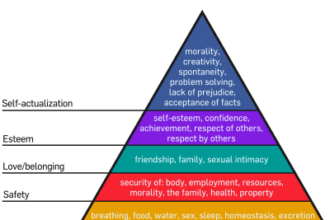“Patients are, in fact, overly patient; they put up with unnecessary discomforts and grant their doctors the benefit of every doubt, until deficiencies in care are too manifest to be overlooked. Generally speaking, one can assume that the quality of care is, actually, worse than surveys of patient satisfaction would seem to show. Patients need to be taught to be less patient, more critical, more assertive.” – Avedis Donabedian, MD. Father of Health Care Quality
“Patients are, in fact, overly patient; they put up with unnecessary discomforts and grant their doctors the benefit of every doubt, until deficiencies in care are too manifest to be overlooked. Generally speaking, one can assume that the quality of care is, actually, worse than surveys of patient satisfaction would seem to show. Patients need to be taught to be less patient, more critical, more assertive.” – Avedis Donabedian, MD. Father of Health Care Quality
 It’s no secret that poor communication tops the list of patient complaints about their physicians. Who hasn’t heard a physician or an enabling administrator say that they “don’t have time to talk to patients” or that they “don’t get paid for talking to patients”? While understandable, that kind of a response seems to demean the interpersonal exchange which is the very essence of the physician-patient relationship.
It’s no secret that poor communication tops the list of patient complaints about their physicians. Who hasn’t heard a physician or an enabling administrator say that they “don’t have time to talk to patients” or that they “don’t get paid for talking to patients”? While understandable, that kind of a response seems to demean the interpersonal exchange which is the very essence of the physician-patient relationship.
Contrary to what most people think, the quality of a physician’s patient communication skills impacts far more than the patient experience. The quality of your physicians’ patient communication skills drives the quality of the patient’s diagnosis, treatment, outcome and cost. And that, my friends, should get your attention.
If 30+ years of evidence is to be believed, there is a practicable solution to today’s physician-patient communication funk everyone finds themselves in. It’s called patient-centered communications.
Here are 10 evidence-based reasons why providers and payers should go beyond useless global measures of patient communication and give serious thought to assessing and improving their physicians’ patient-centered communication skills.
- Improve visit productivity – Collaborative setting of a visit agenda and negotiation of visit expectations by patient and physician have been shown as a way to reduce the “oh by the way” comments at the end of the visit and to allow more to be accomplished often in less time.
- Improve the patient experience – The duration of the visit is not nearly as important to patients as the quality of time spent face-to-face with the physician. Visits in which the physician invites patient participation and makes the patient feel heard and understood produce higher satisfaction and experience scores.
- Increase patient engagement – patients come to physicians for a reason(s). They are already engaged otherwise they wouldn’t be there. Patient-centered physicians solicit the patient’s reasons for the visit, their ideas about what’s wrong and their thoughts regarding what they want the physician to do. It helps eliminate guessing and unfulfilled patient expectations.
- Improve patient adherence – By understanding where the patient is coming from physicians can avoid wasting time recommending treatments which patients will not adhere to, i.e., prescribing a new Rx when patient would prefer lifestyle modifications.
- Fewer requests for expensive tests – Strong physician-patient relationships characterized by effective patient-centered communication skills report higher levels of patient trust in the doctor and lower levels of patient requests for expensive diagnostic tests commonly found in physician-patient relationships reporting lower levels of patient trust in physician.
- Fewer ER visits and hospital readmissions – Patients in strong patient-centered physician relationships are more likely to engage in the kinds of self care management behaviors which preclude ER visits and rehospitalizations.
- Better patient outcomes – Chronic disease patients of physicians with strong patient-centered communication skills are consistently found in studies to report better A1C scores, better controlled hypertension and asthma, and so on.
- Reduce malpractice risk – The majority of malpractice claims involve some form of communication breakdown between physician and patient. Patient-centered physician-patient relationships are characterized by a high degree of relevant and timely information exchange which greatly reduces the risk of physician-patient communication errors.
- Reduce disparities in care – The evidence shows that physicians tend to be more paternalistic and directive when talking with ethnic patients, including sharing less information, compared to when communicating with white patients.
- Increased reimbursement – CMS and many commercial payers now offer incentive payments for outcomes linked to patient-centered communications. i.e., patient experience, reduced ER visits and hospital readmissions, use of generic vs. brand drugs, lower levels of expensive diagnostic tests, etc.
For citations to research studies linked to this post, please contact us at Mind the Gap.
Note: Later this Summer, Mind the Gap will be organizing a communication challenge called Adopt One! TM. The goal of the event will be to challenge physicians and their care teams to adopt one new patient-centered communication skill within the next 12 months.
As part of the Adopt One! Challenge physicians and their care teams will have the opportunity to sign up for a free evaluation of their patient-centered communication skills, have their skills benchmarked against best practices and receive a report detailing their findings and recommended steps for improvement.





